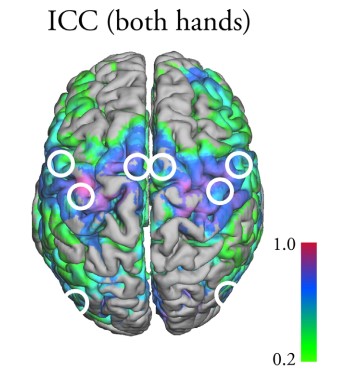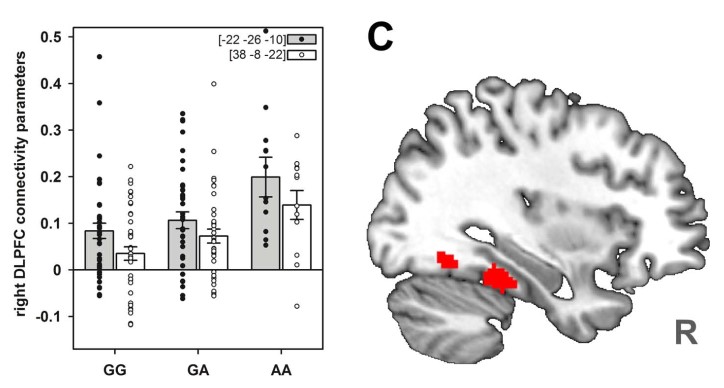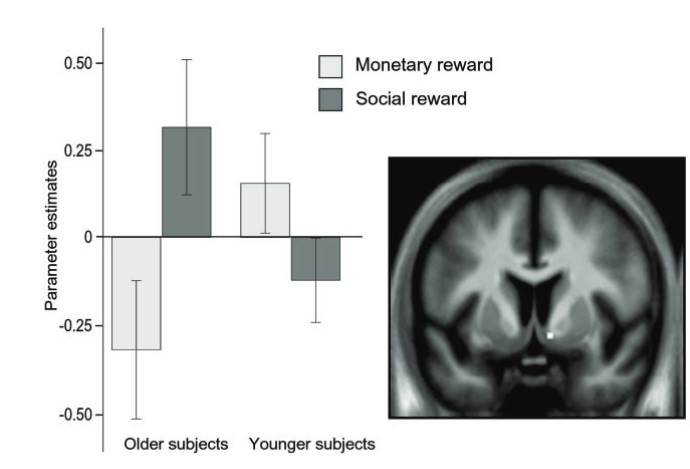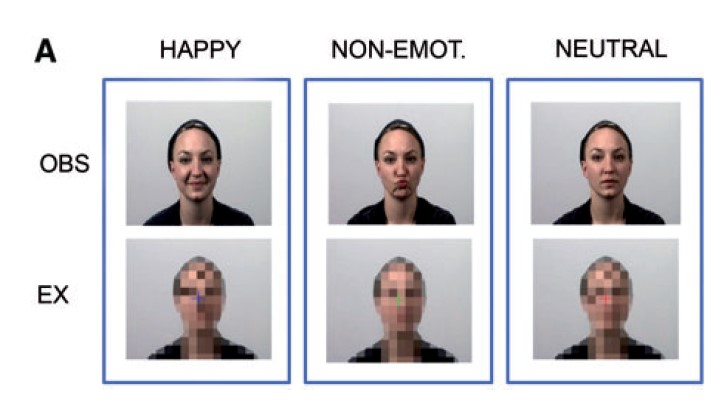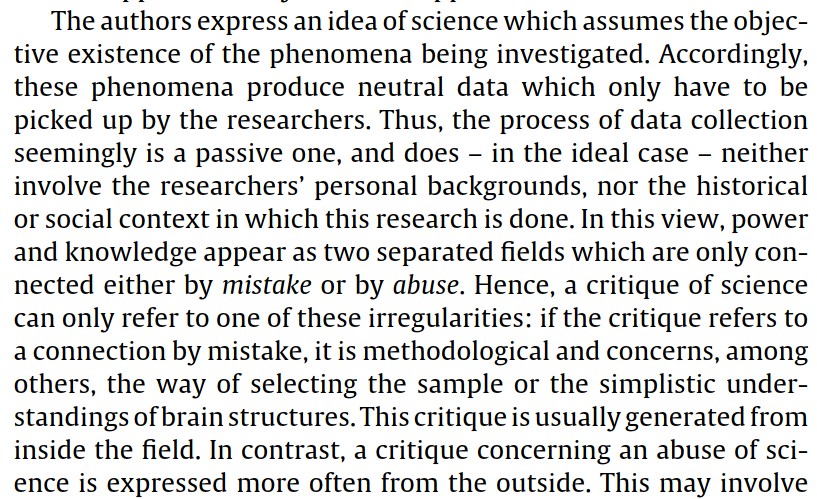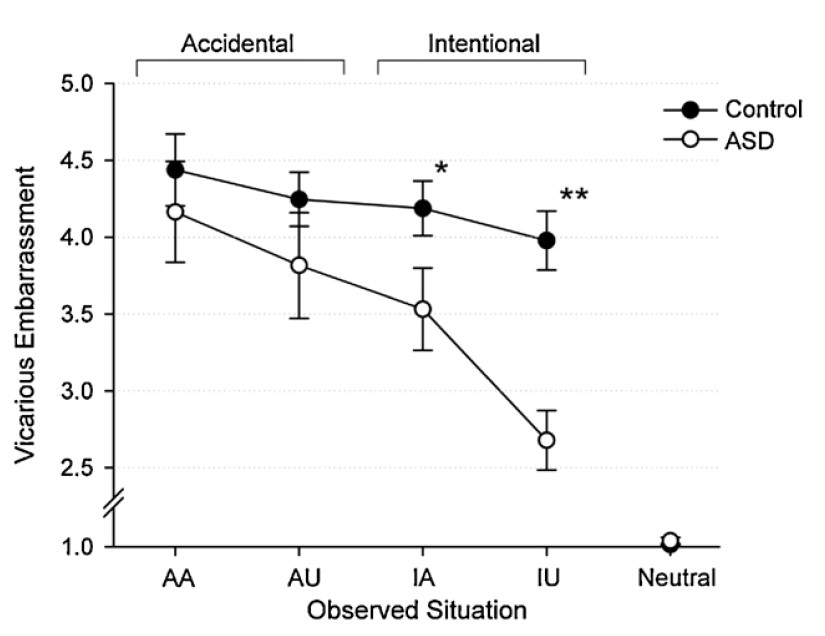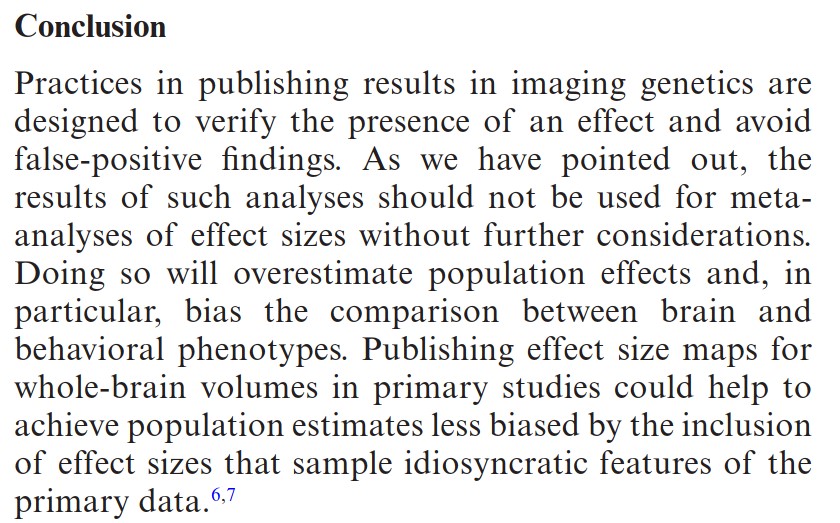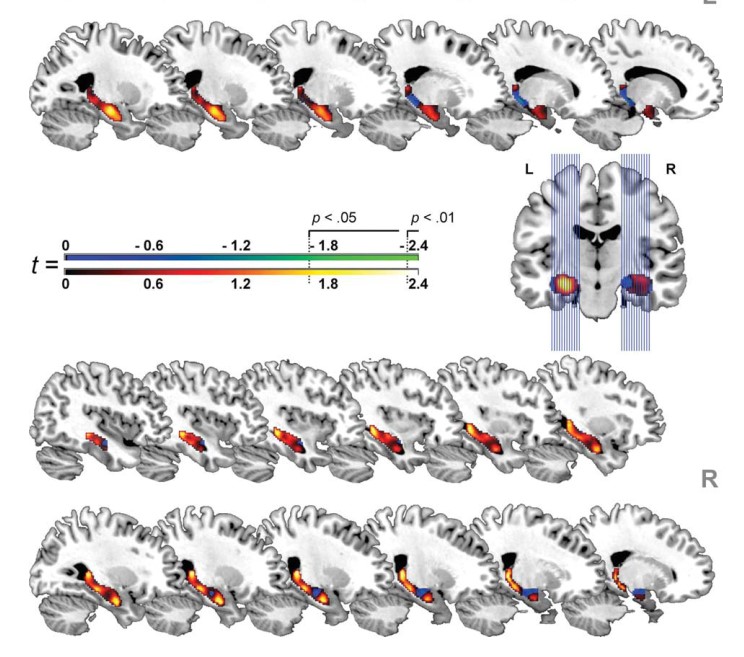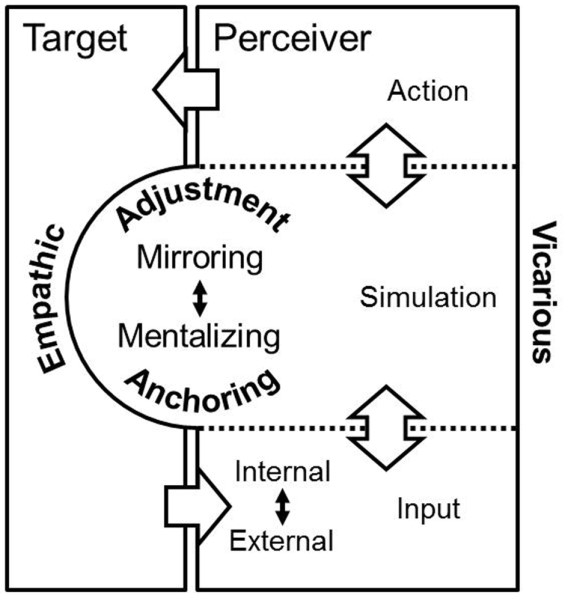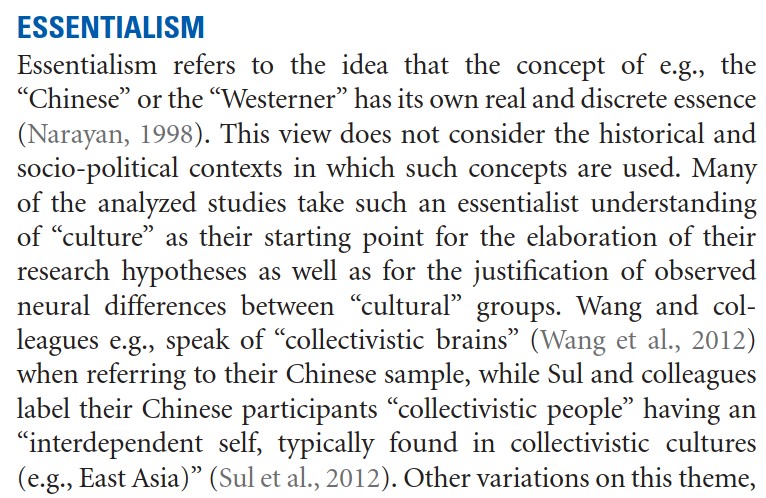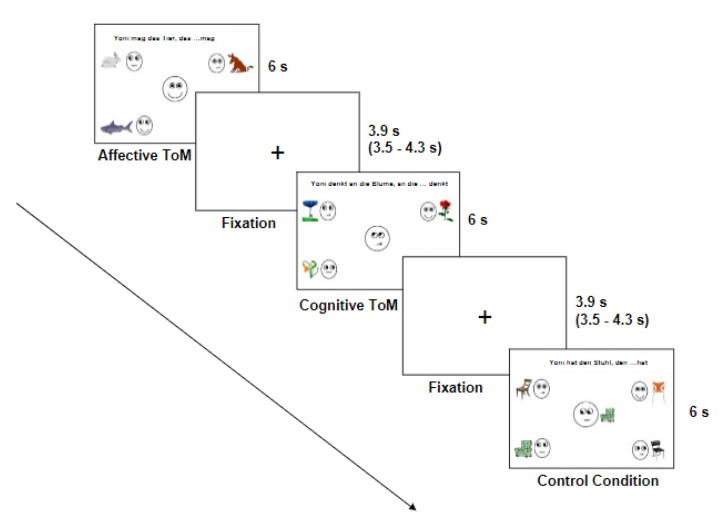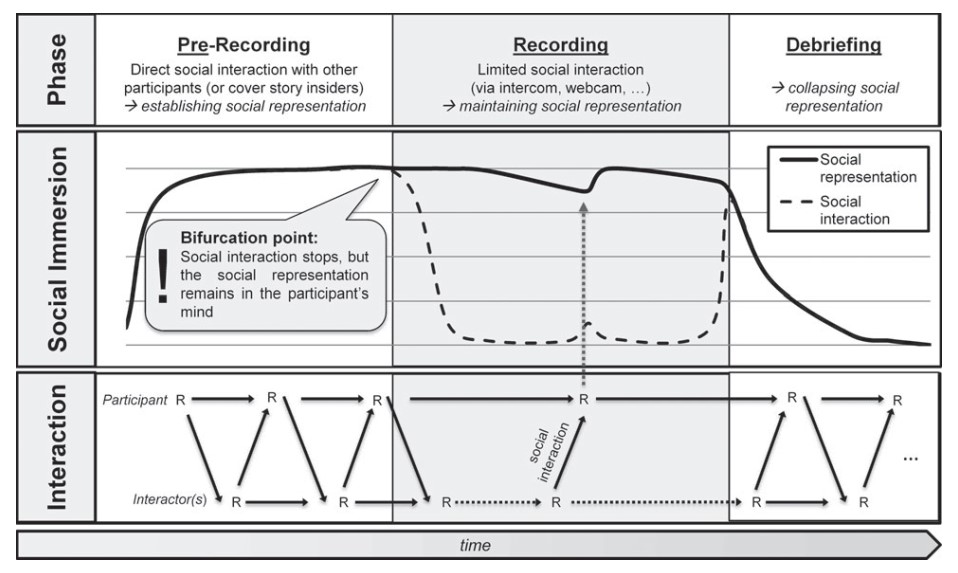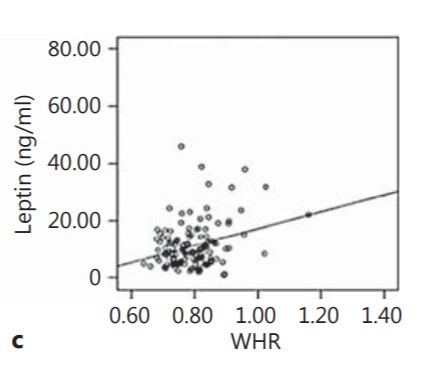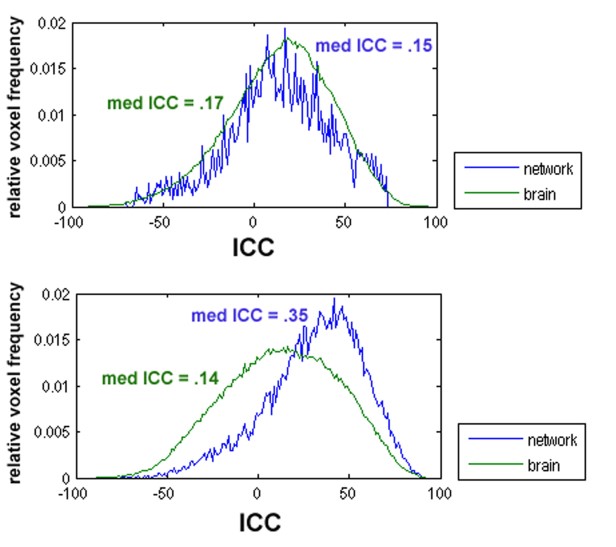Publications
“The argument from authority tries to justify a conclusion by pointing out that some expert or authority endorses the conclusion. […] “My parents say that Santa Claus exists. Therefore Santa Claus exists” or “My peers say that clothing item x is great. Therefore clothing item x is great.” In the case of the JIF, a high impact factor of a journal would play the role of an authority for the quality of the papers within it.”
- Most recent
- Clinical
- Hormones/Neuromodulators
- Meta-Science (Implications)
- Meta-Science (Methods)
- Social Cognition
- Social Emotions
- Social Learning
- Social Reward
Mentalizing and the role of the posterior superior temporal sulcus in sharing others’ embarrassment
August 5, 2015
Cerebral Cortex
Abstract The experience of embarrassment provides a highly salient cue for the human moral apparatus. Interestingly, people also experience embarrassment on behalf of others’ inappropriate ...
Read More
Test-retest reliability of dynamic causal modeling for fMRI
August 5, 2015
NeuroImage
Abstract Dynamic causal modeling (DCM) is a Bayesian framework for inferring effective connectivity among brain regions from neuroimaging data. While the validity of DCM has ...
Read More
Evidence from pupillometry and fMRI indicates reduced neural response during vicarious social pain but not physical pain in autism
February 5, 2015
Human Brain Mapping
Abstract Autism spectrum disorder (ASD) is characterized by substantial social deficits. The notion that dysfunctions in neural circuits involved in sharing another’s affect explain these ...
Read More
Association of rs1006737 in CACNA1C with alterations in prefrontal activation and fronto-hippocampal connectivity
December 5, 2014
Abstract Background: Genome-wide association studies have identified the rs1006737 single nucleotide polymorphism (SNP) in the CACNA1C gene as a susceptibility locus for schizophrenia and bipolar disorder. ...
Read More
Differential patterns of nucleus accumbens activation during anticipation of monetary and social reward in young and older adults
December 5, 2014
Abstract Recent studies have reported inconsistent results regarding the loss of reward sensitivity in the aging brain. Although such an age effect might be due ...
Read More
The uncanny return of the race concept
December 5, 2014
Abstract The aim of this Hypothesis and Theory is to question the recently increasing use of the “race” concept in contemporary genetic, psychiatric, neuroscience as ...
Read More
Acute and sustained effects of methylphenidate on cognition and presynaptic dopamine metabolism: an [18F]FDOPA PET study
December 5, 2014
Abstract Methylphenidate (MPH) inhibits the reuptake of dopamine and noradrenaline. PET studies with MPH challenge show increased competition at postsynaptic D2/3-receptors, thus indirectly revealing presynaptic ...
Read More
Affect-specific activation of shared networks for perception and execution of facial expressions
December 5, 2013
Abstract Previous studies have shown overlapping neural activations for observation and execution or imitation of emotional facial expressions. These shared representations have been assumed to ...
Read More
On the role of critique for science: a reply to Bao and Pöppel
December 5, 2013
Abstract We are pleased that the concerns raised about cultural neuroscience (CN) have initiated a debate. This indicates that there are some issues worth being ...
Read More
Demands in reflecting about another’s motives and intentions modulate vicarious embarrassment in autism spectrum disorders
December 5, 2013
Abstract The affective responses to another person’s condition depend on the ability to reflect about another’s thoughts and intentions. This is relevant also for high-functioning ...
Read More
Potential bias in meta-analyses of effect sizes in imaging genetics
December 5, 2013
Abstract The penetrance of genetic variation has been assumed to be higher at the level of neural phenotypes than at the level of behavioral phenotypes. ...
Read More
Partial support for ZNF804A genotype-dependent alterations in prefrontal connectivity
December 5, 2013
Abstract Genome-wide association studies identified the single nucleotide polymorphism rs1344706 in ZNF804A as a common risk-variant for schizophrenia and bipolar disorder. Whereas the molecular function ...
Read More
On the distinction of empathic and vicarious emotions
December 5, 2013
Abstract In the introduction to the special issue “The Neural Underpinnings of Vicarious Experience” the editors state that one “may feel embarrassed when witnessing another ...
Read More
Essentializing the binary self: Individualism and collectivism in cultural neuroscience
December 5, 2013
Abstract Within the emerging field of cultural neuroscience (CN) one branch of research focuses on the neural underpinnings of “individualistic/Western” vs. “collectivistic/Eastern” self-views. These studies ...
Read More
Comparing the neural correlates of affective and cognitive theory of mind using fMRI: Involvement of the basal ganglia in affective theory of mind
December 5, 2013
Abstract Theory of Mind (ToM) is the ability to infer other people’s mental states like intentions or desires. ToM can be differentiated into affective (i.e., ...
Read More
Advancing the neuroscience of social emotions with social immersion
December 5, 2013
Abstract Second-person neuroscience offers a framework for the study of social emotions, such as embarrassment and pride. However, we propose that an enduring mental representation ...
Read More
Functional polymorphism in the neuropeptide Y gene promoter (rs16147) is associated with serum leptin levels and waist-hip ratio in women
December 5, 2013
Abstract Objective: The neuropeptide-Y (NP-Y) gene is a strong candidate gene in the pathophysiology of obesity-linked behavior, and several single-nucleotide polymorphisms of NP-Y have already been ...
Read More
The impact of dopamine on aggression: an [18F]-FDOPA PET Study in healthy males
December 5, 2013
Abstract Cerebral dopamine (DA) transmission is thought to be an important modulator for the development and occurrence of aggressive behavior. However, the link between aggression ...
Read More
Elaborative encoding during REM dreaming as prospective emotion regulation
December 5, 2013
Abstract Rapid eye movement (REM) dreaming results in “emotionally intelligent encoding,” according to the target article. Building on this, we argue that elaborative encoding alters ...
Read More
Test-retest reliability of fMRI brain activity during memory encoding
December 5, 2013
Abstract The mechanisms underlying hemispheric specialization of memory are not completely understood. Functional magnetic resonance imaging (fMRI) can be used to develop and test models ...
Read More

